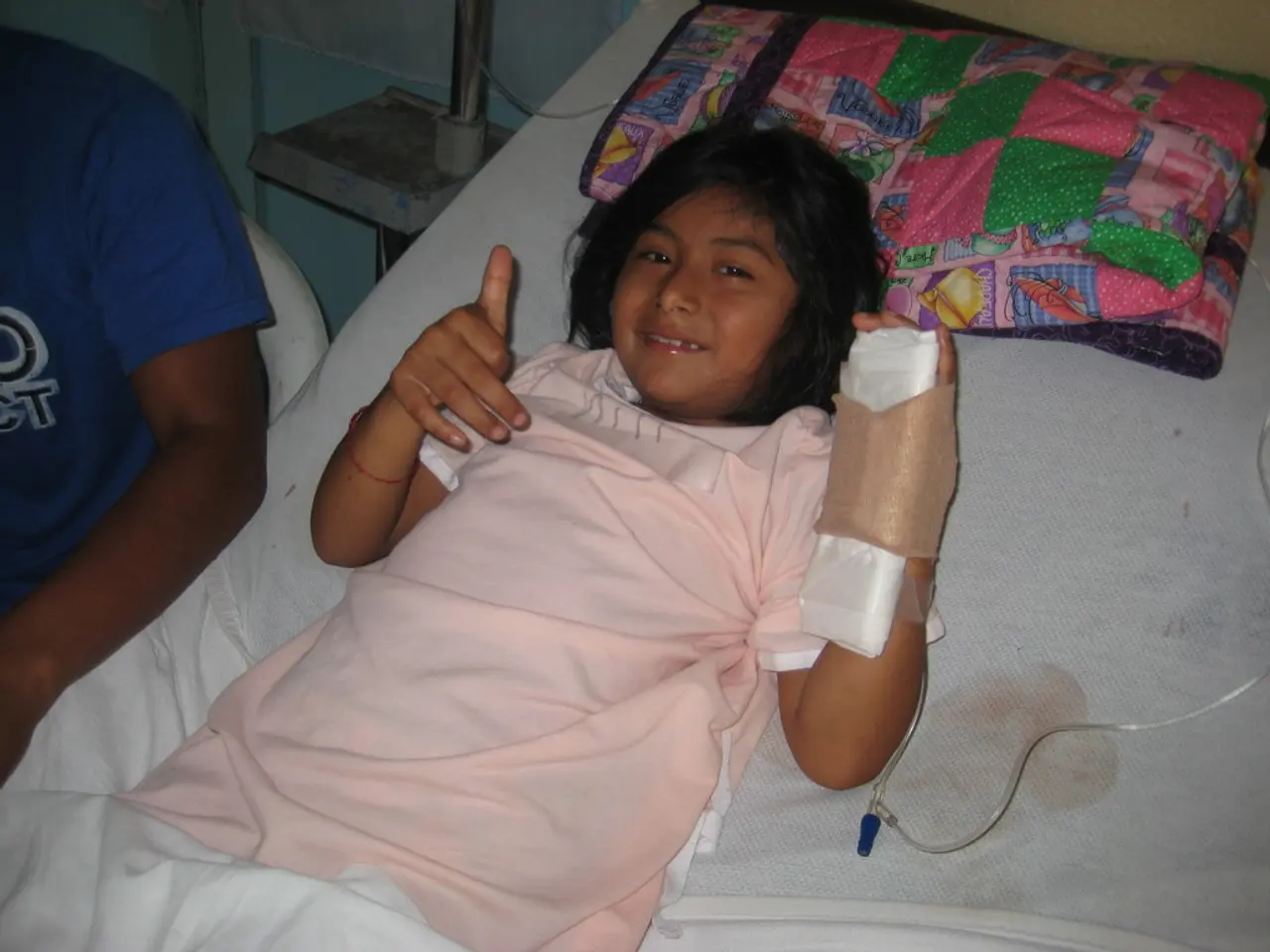Women's Chest Discomfort: Origins, Identification, and Remedies
In the realm of health concerns, chest pain is a symptom that warrants immediate attention, especially in women, as the symptoms can be less obvious and more varied compared to men. This article aims to shed light on the common symptoms of heart attacks in women and other possible causes of chest pain.
Heart attacks in women often manifest with symptoms that may feel like pressure, tightness, fullness, or squeezing in the chest, rather than the classic "crushing" pain often associated with heart attacks in men. Other symptoms may include shortness of breath, pain or discomfort in one or both arms, weakness, fatigue, nausea or vomiting, pain or discomfort in the jaw, neck, or upper back, breaking out in a cold sweat, and feelings of anxiety or impending doom.
However, it is essential to note that chest pain in women can stem from several non-cardiac causes. Indigestion or heartburn, musculoskeletal issues, pulmonary causes, anxiety or panic attacks, and gastrointestinal problems are among the potential culprits. For instance, indigestion can cause a burning or squeezing feeling in the chest and upper abdomen, while a pulmonary embolism can lead to sharp chest pain and difficulty breathing.
Given the wide range of potential causes, it is crucial to seek immediate medical attention if experiencing persistent or severe chest discomfort. A doctor may run various tests, such as a chest X-ray, blood tests, MRI, angiogram, electrocardiogram (EKG), stress tests, echocardiogram, to determine the cause of the chest pain.
If a heart-related condition is suspected, treatment options may include cardiac catheterization, medications that open blocked arteries, break down clots, or thin the blood, and surgery to repair arteries. However, if the chest pain is due to non-cardiac causes, such as indigestion or a broken rib, appropriate treatments like antacids or rest, or treating the underlying condition, can help alleviate the pain.
In conclusion, women's heart attack symptoms can be less obvious and include a wider range of symptoms beyond just chest pain. It is essential to be aware of these symptoms and seek immediate medical attention if any signs are present. Moreover, chest pain in women can arise from several non-cardiac causes, making careful assessment crucial. As always, it is beneficial to consult a doctor about any chest pain to ensure prompt and effective treatment.
References: [1] American Heart Association. (2021). Heart Disease and Stroke Statistics - 2021 Update. Circulation, 143(8). [2] American College of Cardiology. (2020). ACC/AHA Guideline on the Primary Prevention of Cardiovascular Disease. Journal of the American College of Cardiology, 76(17). [4] National Heart, Lung, and Blood Institute. (2019). Heart Disease in Women. Retrieved from
In addition to heart attacks, chest pain may signify other medical conditions, such as diabetes, heartburn, GERD, or multiple sclerosis. For instance, diabetes can cause chest pain due to changes in blood sugar levels, while heartburn can lead to a burning sensation in the chest and upper abdomen.
Macular degeneration, a condition that affects the eyes, can sometimes cause symptoms like chest pain and shortness of breath. Similarly, certain skin conditions, like psoriasis, dermatitis, or atopic dermatitis, may present with chest pain due to their systemic effects.
In terms of digestive health, colitis, ulcerative colitis, and other gastrointestinal disorders can cause abdominal pain and discomfort that may radiate to the chest. Furthermore, women's health conditions, such as migraines, asthma, or even certain types of cancer like NSCLC, can manifest with chest pain.
Multiple sclerosis and other conditions involving multiple systems, like AQ-related disorders and even migraines, can present with a variety of symptoms, including chest pain. Science and medical research continue to uncover the complex interplay between various health and wellness factors, such as cardiovascular health, women's health, and health-and-wellness overall.
If you experience chest pain, it's essential to consult a healthcare professional for a proper diagnosis and treatment. Whether it's a heart attack, other cardiovascular issues, or one of the many other potential causes, timely diagnosis is crucial for effective treatment.




